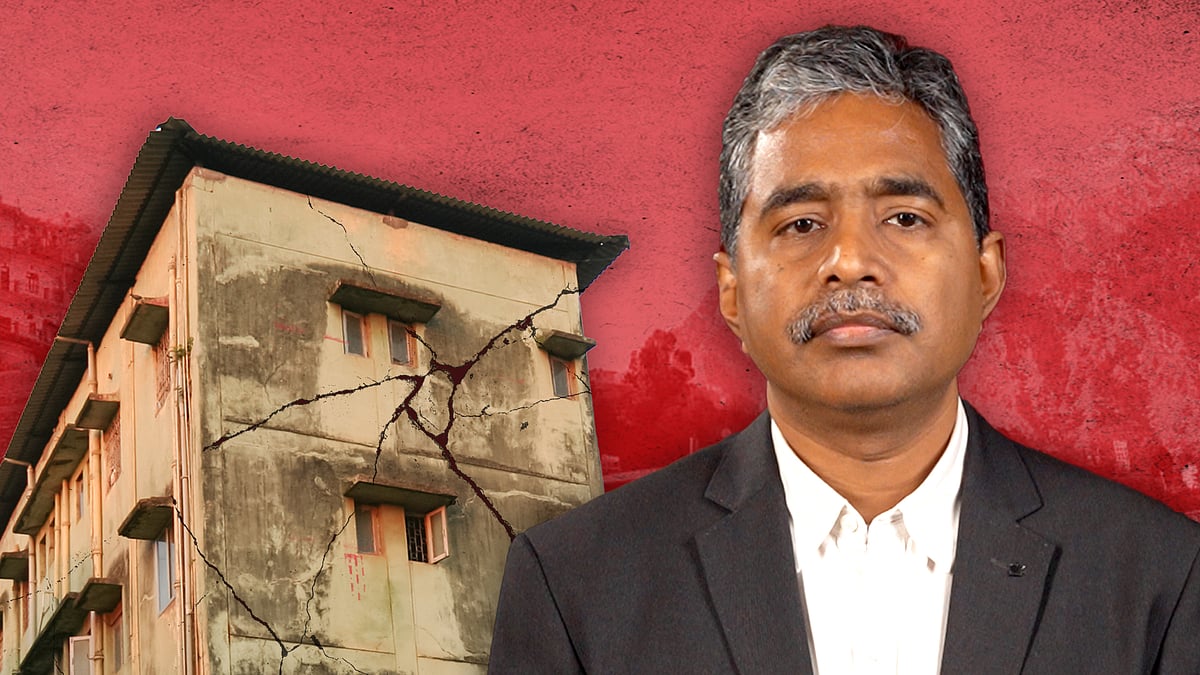‘Government, don’t ignore us!’: 22 km from Joshimath, Reni’s villagers worry they’re next
Home of the Chipko movement, they’ve already been warned of imminent danger by experts.
“Our entire village is in danger,” said Malki Devi, her voice shaking in anger. “There are cracks in every house here. Government, don’t ignore us!”
Malki Devi lives in the Uttarakhand village of Reni, home of the Chipko movement and picturesque views of the Rishiganga river. But it’s also plagued by anger, worry and disappointment. Twenty-two km away, the hill town of Joshimath is sinking – and Reni’s residents are frightened that they’ll be next.
They’ve had experience with tragedy too. Two years ago, on February 7, 2021, the Rishiganga flooded, causing extensive damage to Reni, which sits on its banks. Five people died.
“The whole village began shaking as if it would submerge,” recalled Mamta Rana, a resident of Reni. “People didn’t sleep in their homes for several weeks and spent nights in the forest on top of the mountain.”

A statue of Gaura Devi of the Chipko movement.

Reni lies on the banks of the Rishiganga river.
Newslaundry had visited Reni at the time. Two years later, the tension remains, this time directed towards what’s happening in Joshimath. And, just as Joshimath’s residents blamed the NTPC hydropower project for their woes, the people of Reni said a private company’s hydro project has “ruined” their lives. The 13.2 megawatt project was destroyed during the 2021 floods.
“The project was washed away but the tunnel built for it incurred a lot of loss for us,” said Bina Devi, head of the Mahila Mangal Dal in Reni. “Due to its digging, breaking and explosions, our whole mountain shook. Our fields were destroyed.”
She said a “case was filed against her” when she tried to file a complaint against the company for illegal construction. “We used to ask them to not go to our forest and cut wood, but they filed a case against whoever raised their voice.”
Malki Devi added, “Now, we won’t allow the company to come here and will not allow anyone to enter the forest...During the last devastation, the government didn’t even come to see us. Government, don’t ignore us! Do what’s right.”
The way ahead
Fifty-five families call Reni their home, but the village is half-empty. “Nobody wants to happily leave their home. And this is the village of the world-famous Gaura Devi,” said village head Bhagwan Singh Rana. “But we worry about what will happen if our village sinks.”
In 2021, geotechnical expert B Venkateshwarlu and geologist GVRK Acharyulu had described Reni as a “landslide” zone being eroded by the river. Geologist Deepak Hatwal had also urged families to resettle elsewhere. But the proposed rehabilitation never took place.
“We are unable to find suitable and safe land for Reni’s residents to settle,” said Himanshu Khurana, the district magistrate of Chamoli. “Due to this, the rehabilitation work has stopped but we are looking for land. If people want to buy land and settle elsewhere, we have kept that option open. They can settle in any other district as well but the availability of safe land is essential.”


Scenes from the village.
Village head Rana said he had heard that “37 villages are to be displaced, but we don’t know when Reni’s turn will come”.
“Displacement takes time but geologists said Reni is in danger and its people should be moved,” he told Newslaundry. “That’s why we say at least those in imminent danger should be moved first.”
For now, Reni’s residents are gearing up for a satyagraha. “I have seen people crying in despair in Joshimath because their homes were destroyed,” said Jaima Devi, 55. “We have suffered the same too. No one can move ahead alone, no battle can be won alone. This battle can only be won if all the villagers come together.”
Watch.
This report was first published on Newslaundry Hindi. It’s part of the NL Sena series on the Joshimath crisis and other calamities waiting to happen in Uttarakhand. Contribute now.
 A sinking city: Fear and anger in Joshimath, the gateway to Badrinath
A sinking city: Fear and anger in Joshimath, the gateway to BadrinathNL Digest
A weekly guide to the best of our stories from our editors and reporters. Note: Skip if you're a subscriber. All subscribers get a weekly, subscriber-only newsletter by default.